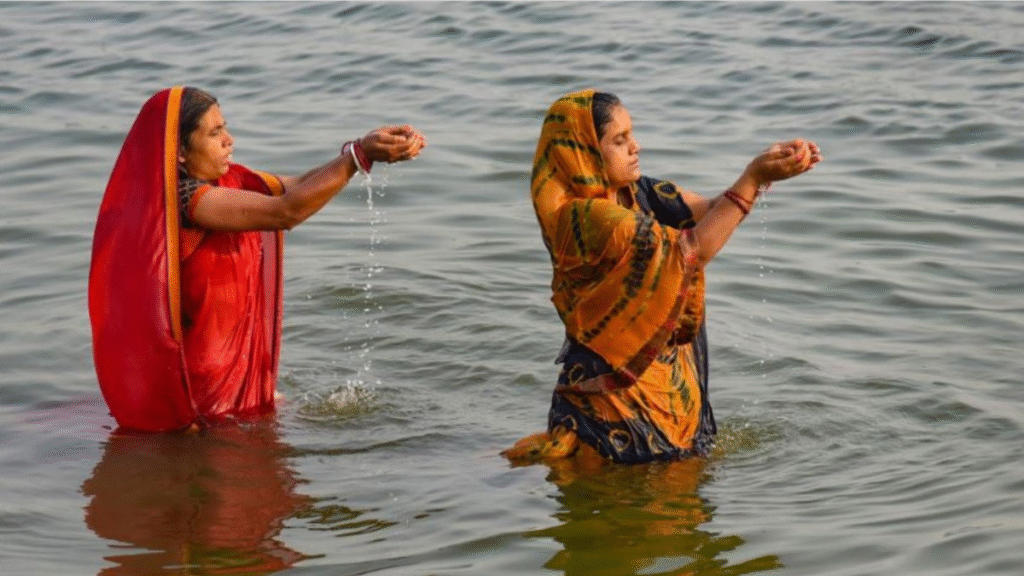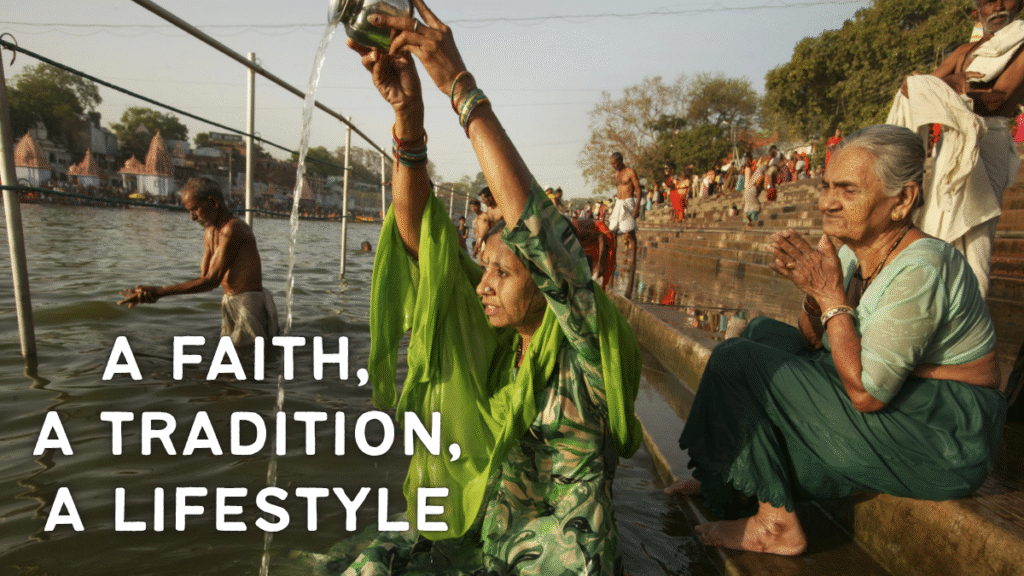Introduction
Rivers in India aren’t simply a source of water but also an image of devotion and faith. Of all the rivers, the Ganga is the most respected and sacred. The river water of the Ganga River, which we refer to as Gangajal, isn’t simply a religious object; it’s additionally part of the existence of each Hindu family. The non-secular, cultural and religious price of Gangajal is so profound that it follows us in some manner or the opposite at every factor in existence. In this text, we are able to learn why Gangajal is so holy, what the myths associated with it are, and what its importance is in the contemporary era.
Sacred Gangajal

The Ganga River water, which we refer to as Gangajal, is a very sacred one in Hinduism. It is more than just a river; it’s a profound symbol of religion, tradition and religious faith. As per Hindu beliefs, Ganga has descended from heaven down to the earth, and its water can be used to wash away sins. Ganga’s bath or sprinkling at home is thought to cleanse the mind, body and surroundings.
Mythological and religious beliefs about Ganga water
The holy nature of Ganga water has been defined in historical Hindu scriptures. King Bhagirath is supposed to have practiced intense penance and known as Ganga from heaven to the earth in order that the souls of his ancestors could discover eternal peace. This delusion describes why Ganga water is so sacred and robust.
It is also said in Hindu scriptures that “only those sins are cleansed in Ganga that might be accomplished by using mistakes.” That is, sins carried out purposely are not forgiven; however, Ganga is forgiving for the moves finished by means of mistake.
Spiritual and purifying power of Ganga water
Ganga has been bestowed with the name of a mother in Hinduism. She is revered by way of addressing her as ‘Maa Ganga.’ It is the notion that merely by getting into touch with Ganga water, all sins are washed away and the soul is guided to liberation. This is why Ganga water is carried out on essential milestones of life, including birth, marriage and dying. While being born, the child is cleansed with Ganga water, and while losing life, there is an exercise of setting some drops of Ganga water inside the mouth so that the soul can also find peace and salvation.
Social and worldly significance of Ganga water
The River Ganga is not simply significant from a spiritual attitude, but it is also nourishing. This river runs via places together with Haridwar, Rishikesh, and Banaras and turns into the lifeblood of thousands of people. Numerous individuals practice yoga, meditation and sadhana at the banks of this river. The tranquil and sacred ecosystem of the banks of the Ganga is notion to be best for meditation and calmness of the thoughts.
Ganga water and environmental studies
The properties of Ganga water have not only been observed from a religious perspective, but its properties have also been verified scientifically. In a report titled ‘Assessment of Water Quality and Sediment To Understand Special Properties of River Ganga,’ it was recounted that there occur some special bacteriophages in Ganga water that are useful in destroying bad bacteria. Due to this, Ganga water possesses certain qualitative features that are absent in the water of any other river.
Ganga water also has a unique ecosystem wherein a number of animals and plants derive life. Even though pollution has worsened its state, the faith in its purity motivates people to keep it safe.
Ganga water—a faith, a tradition, a lifestyle

Ganga water is not just a religious symbol of our life, but it has become an integral part of our culture and tradition too. From Ganga Aarti on the banks of Banaras to the practice of sprinkling Ganga water before worship in houses—it is present everywhere. This water is with us throughout our lives, from birth to death, and becomes an important part of our rituals.
Conclusion
Ganga water is not water but a representation of belief, faith and cultural heritage. It not only indicates the way of purification and salvation to us, but also from the environmental perspective. Mythological myths about Maa Ganga teach us that purity should not be only external but also internal. When we stand beside the river Ganga, we don’t just observe a river but experience a living faith. We need to keep Maa Ganga clean and secure to preserve her purity so that the next generation can feel its divinity too.
FAQs
Why is Ganga Jal considered holy in Hinduism?
Ganga Jal is believed to come from heaven and purify sins, as per ancient Hindu scriptures and spiritual beliefs.
What is the origin story of the Ganga river according to Hindu mythology?
The Ganga descended from heaven to Earth due to Bhagirath’s prayers to purify his ancestors’ ashes and the land.
Can Ganga Jal wash away all sins?
Only sins committed unintentionally are believed to be washed away by Ganga Jal, not the ones done knowingly.
